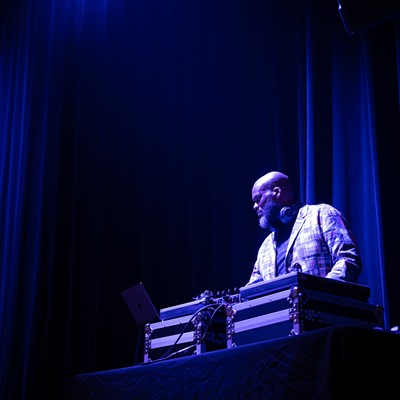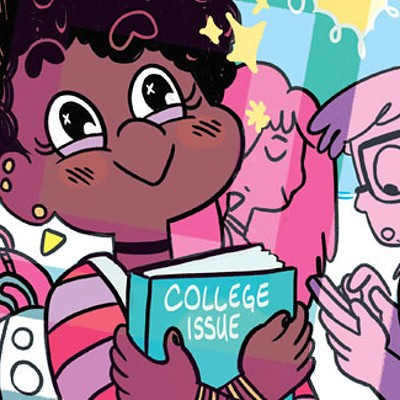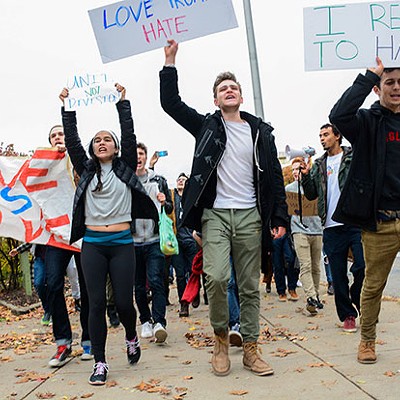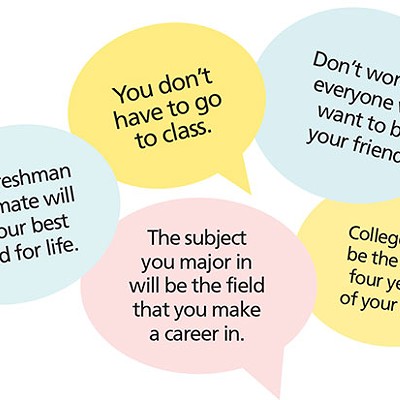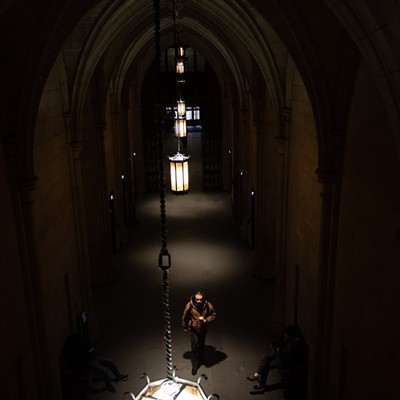It’s not news to anyone that college tuition continues to increase locally and across the nation. But are those dollars actually making their way into the classroom?
Between the years 2001 and 2011, the cost of tuition at public four-year colleges increased by 73 percent, while the compensation of faculty increased by only 6 percent, according to the nonprofit organization College Board.
During this time, and since, the growing practice of giving part-time and short-term contracts to instructors at universities has decreased their job security and wages. This has left many professors feeling inadequately supported to provide students with the kind of education they deserve.
“[Students] have a very reasonable expectation, which is that if they’re paying a lot of money for their education, that that money is going to provide a quality education,” says Paul Johnson, an assistant professor at the University of Pittsburgh. “It’s going to be paying for people who have the time and the resources and the institutional support to be able to get together and work with and teach students with some expectation of consistency, professionalism and certainty.”
Part-time instructors, commonly called “adjuncts” — which indicates how often their positions are treated as supplementary rather than essential — are struggling not only to be the kind of teachers they want to be in the classroom, but also to find financial stability. Many instructors are forced to take on extra work, either by teaching at multiple universities at once, or by finding other jobs altogether.
Sarah Leavens, a lecturer at Pitt, used to work late nights at a bakery even though she had to teach in the morning because her income as an adjunct wasn’t enough.
“As an adjunct, you don’t know if you’re going to have a job in three months,” Leavens says. “You probably can’t make car payments. You can’t buy a house. So you’re living semester to semester — everything is insecure. You’re housing-insecure; you’re maybe transportation-insecure. So there are all of these life things that you have to worry about regularly, in addition to just not being able to pay your bills or maybe afford food, that take up a lot of time and energy.”
Josh Zelesnick, another adjunct professor, says that adjuncts are right to worry. Once, just three weeks before the start of the semester, Zelesnick had both of his classes at Pitt canceled, and another canceled at Duquesne. So while he expecting the income from teaching four classes, he was left with just one. “This happens to [adjunct] professors all the time,” Zelesnick says.
Issues like these are why many universities’ faculties, adjuncts and graduate students are seeking to unionize.
Adjuncts in the McAnulty College at Duquesne elected to unionize in 2012, but the university is currently challenging that election in court. Point Park’s faculty elected to unionize over a year ago and is negotiating its first contract. The school’s adjuncts also unionized and signed their first contract in 2015. The adjuncts at Robert Morris University unionized and reached their first contract agreement just this summer.
Pitt’s faculty is now attempting to follow suit, organizing across ranks to include all faculty — from adjunct to tenured — in one union. Pitt graduate students are also hoping to form their own union.
While this may sound only abstractly related to students, instructors insist that at the core of their unionizing efforts is a desire to bring the focus of their universities back to the classroom.
“The faculty working conditions are the student learning conditions,” says Tyler Bickford, an assistant professor at Pitt. “If faculty aren’t being paid enough, and they have to take extra jobs, in a very direct way they don’t have the same amount of time to focus on individual students. But it’s not just salaries, it’s working conditions. As classes are larger, or there are more students in each class, as faculty workloads increase, then teachers don’t have as much time to spend on students, so education becomes more automated and less personal.”
Point Park graduates Samey Jay and Ren Finkel advocated for Point Park faculty through the Student Solidarity Organization by handing out pins, circulating petitions and holding protests.
“Our money is going to more administrative costs rather than to the professors who are doing the actual work of educating the students,” Jay says.
“So many of [our professors] go so above and beyond the basics, and they should be rewarded for that,” Finkel says. “When you’re in a higher-education setting, it’s so much more than having information thrown at you and taking tests. It’s about developing yourself as a person, developing yourself in the field you want to go into, and the professors are the ones that provide that.”
If students at other universities feel the same, Jay and Finkel encourage them to stand up in support of their instructors and in support of their own education.
“You have to be active and involved in your community, and your community is your campus,” Jay says. “If you want to get the best education that you can for the investment that you’re making, then you need to be invested in that community.”



